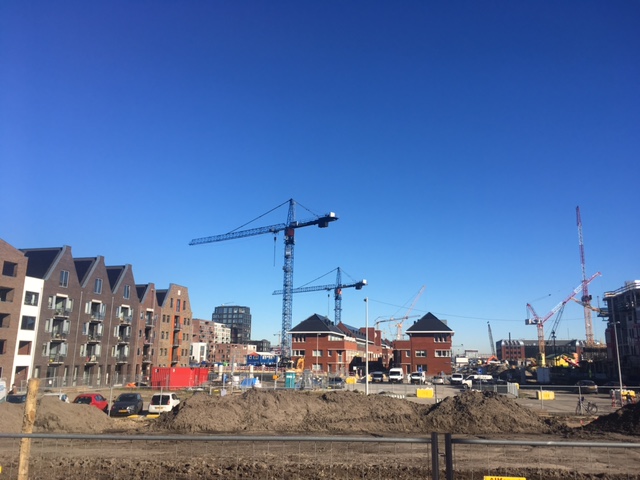Partner content
Things to think about when buying a newly-built home

The newspapers may be full of stories about how developers are pulling the plug on new residential developments because of changes to the housing market rules, but there are still lots of great projects on the go. Financial advisor José de Boer has some advice for people who want to buy a newly-built home.
You may have seen building work starting on a piece of long-abandoned land, or perhaps an advert for a new apartment complex with a rooftop garden and all mod cons has caught your fancy. You may be fed up with your noisy upstairs neighbours or want to move to something more energy efficient. There are all sorts of reasons why buying a newly-built home can make sense.
The downside of buying a newly built home is that you have to wait for it to be finished, and that can take months, if not years. On the other hand, there are some distinct financial advantages. You don’t have to pay property transfer tax (overdrachtsbelasting) as you do on an existing house, and the bank will lend up to 100% of the market value, so you don’t need much in the way of savings either.
Costs
In terms of costs, you only have to pay your mortgage advisor and part of the legal fees – for the mortgage but not the buying part, which is covered by the developer. You do pay value-added tax, but that is included in the purchase price, so that is not something you need to stump up extra for.
There are other benefits too. For example, you can often design the bathroom and kitchen to your own taste, and of course, you will get at least an A+ energy label, or even an energy-neutral home, so your electricity bills will be minimal. Your new home will also be pretty maintenance-free, which is another expense you won’t have to deal with. New developments are including all sorts of shared facilities such as car parking, gyms, electric cars and concierge services now – which make for extremely easy living as well.
Of course, you will have to live somewhere else while your property is being built or finished off. But I have even come across developers who will help you find somewhere to live for a month or two while you are waiting.
Renteverlies
There are a couple of other charges you will probably have to pay, such as renteverlies voor de bouw or bouwrente, which is how you, as a buyer, compensate the developer for the use of their money while the construction process is underway.
You may also have to pay renteverlies tijdens de bouw which compensates your mortgage provider for the income they have missed out on because you have not yet ‘spent’ all your mortgage while work is in progress.
Financially it can be more sensible to pay these expenses out of your own pocket rather than via your mortgage, but that is something your financial advisor can help you with. I can’t stress enough how important it is to get proper advice.
Living abroad
But what if you live abroad and are thinking about buying a newly-built property as a pied à terre, or for a child who needs somewhere to live while they are at university, or even as an investment to rent out? Here too there are advantages to buying somewhere totally new.
If you are buying an existing home as an investment or if you live outside the Netherlands, the transfer tax is 10.4%. But all that disappears if you sign up for a newly-built flat or house. You pay no transfer tax at all, and that is something we financial advisors are always happy to point out.
f you would like to more about taking out a mortgage in the Netherlands, please contact José via email or phone 31 (0)20 664 55 78.
Thank you for donating to DutchNews.nl.
We could not provide the Dutch News service, and keep it free of charge, without the generous support of our readers. Your donations allow us to report on issues you tell us matter, and provide you with a summary of the most important Dutch news each day.
Make a donation